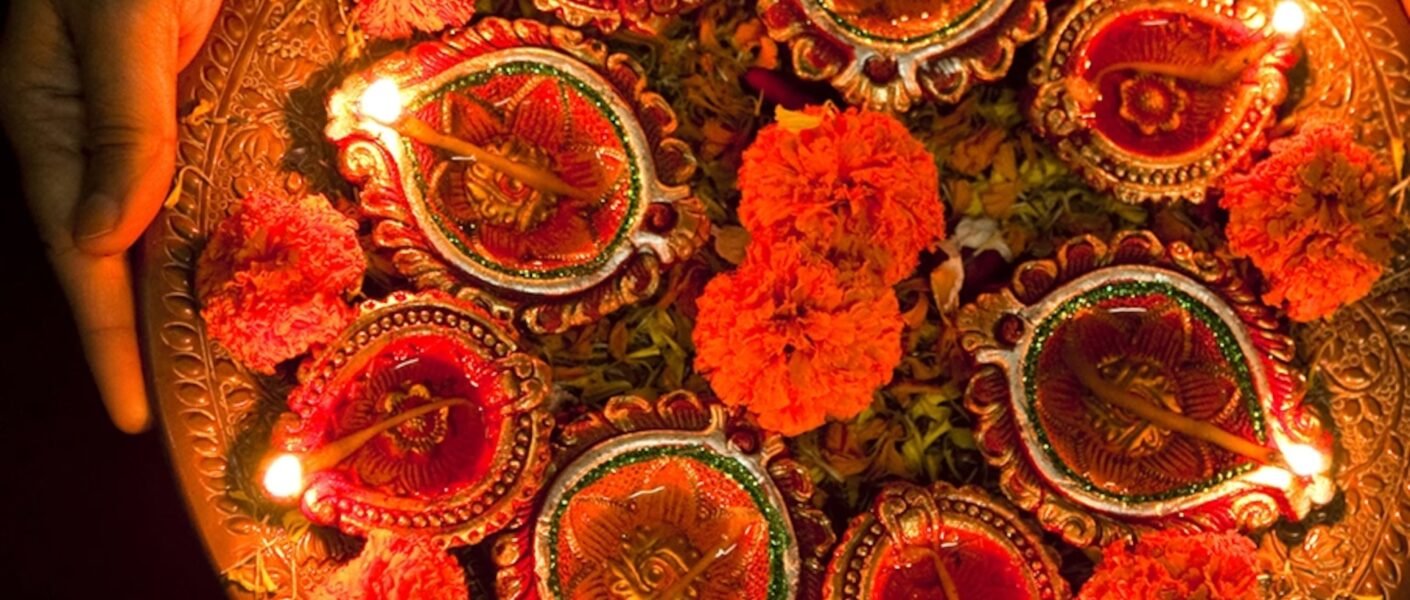Diwali, also known as Deepavali, is one of the most vibrant and widely celebrated festivals in India and among Indian communities worldwide. This festival of lights symbolizes the triumph of light over darkness and good over evil. In this blog, we’ll explore the significance, traditions, and the joyous spirit of Diwali.
The Significance of Diwali
Diwali holds a special place in the hearts of millions. Its significance can be understood through various aspects:
- Victory of Good Over Evil: Diwali commemorates the victory of Lord Rama over the demon king Ravana, as described in the ancient epic, Ramayana. It signifies the triumph of righteousness and truth over darkness and wickedness.
- The Festival of Lights: The name “Diwali” itself means a row of lights. People decorate their homes with oil lamps (diyas), candles, and colorful rangoli designs. This illumination is a symbol of hope and the dispelling of ignorance.
- Lakshmi Puja: Diwali also marks the worship of Goddess Lakshmi, the Hindu goddess of wealth and prosperity. Devotees believe that her blessings will bring them wealth and good fortune.
Diwali Traditions
Diwali is a time of elaborate rituals, customs, and celebrations that vary across different regions of India. Here are some common traditions associated with the festival:
- Cleaning and Decoration: Before Diwali, people clean their homes thoroughly and decorate them with colorful rangoli designs and intricate patterns. This symbolizes the welcoming of the goddess and the light of knowledge.
- Lighting of Lamps: Lighting oil lamps (diyas) and candles is a central tradition. These lamps are placed at entrances, in windows, and throughout the house, creating a breathtaking spectacle of light.
- Fireworks and Crackers: Fireworks and firecrackers are a thrilling part of Diwali. The night sky is ablaze with colors and sounds as people celebrate with these pyrotechnic displays.
- Exchanging Gifts: It’s customary to exchange gifts and sweets with family and friends during Diwali as a gesture of love and goodwill.
- Traditional Sweets: Preparing and sharing sweets and special dishes are an integral part of Diwali. Popular treats include ladoos, jalebis, and barfis.
- Family Gatherings: Diwali is a time for family reunions. Relatives come together to celebrate, share stories, and strengthen their bonds.
The Joyous Spirit of Diwali
Diwali is not just a religious festival; it’s a celebration of life itself. The joyous spirit of Diwali is infectious, and it transcends cultural boundaries. It’s a time when people put aside their differences and come together to spread happiness and positivity.
The festival also extends beyond India, celebrated by the Indian diaspora across the globe, making it a truly global festival. It serves as an opportunity to share Indian culture, values, and traditions with the world.
In Conclusion
Diwali is a beautiful festival that signifies the triumph of good over evil, light over darkness, and knowledge over ignorance. It is a time of unity, joy, and togetherness, where people of all backgrounds come together to celebrate the spirit of Diwali. As the festival of lights, Diwali continues to illuminate hearts and homes, spreading warmth, hope, and love to all who partake in its celebration.




